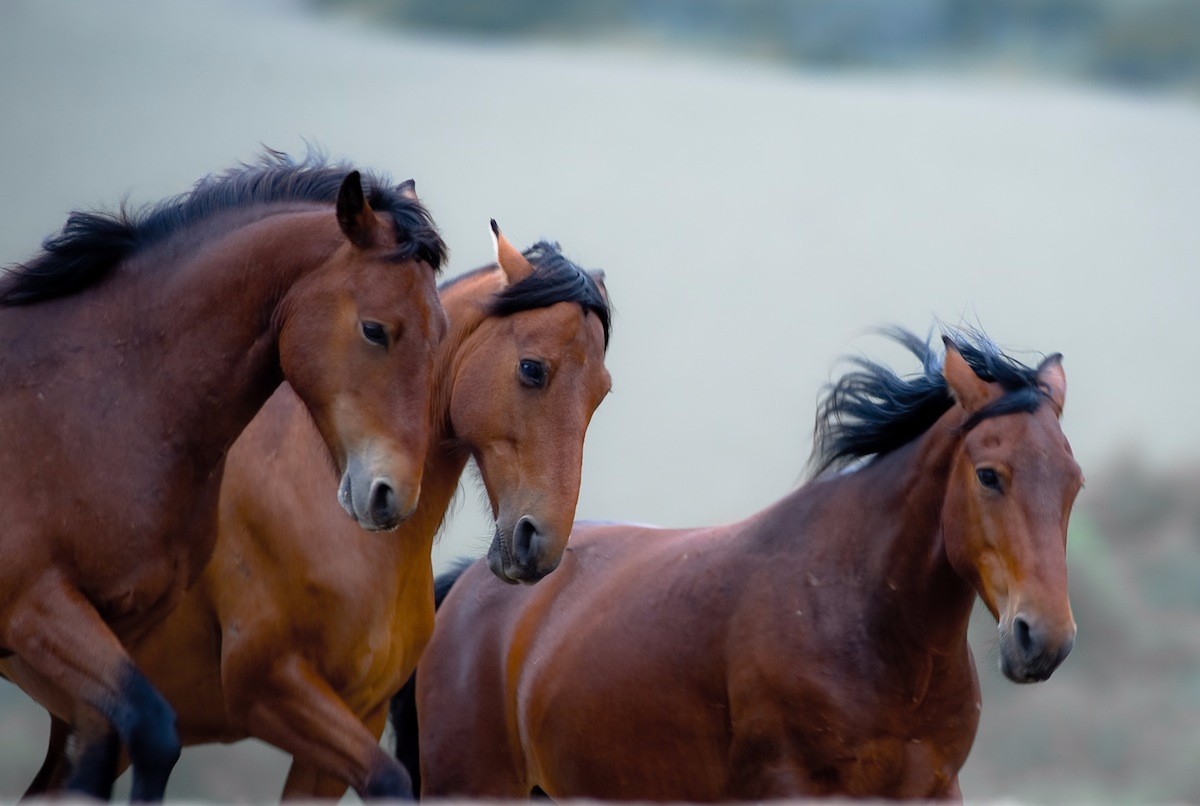Loading....

Photo by Tina Thuell
Embrace a Humane, Sustainable Future on the Range for Wild Horses and Burros
We, the undersigned citizens, call on the United States President, the U.S. Congress, and the U.S. Department of the Interior to redirect tax dollars toward on-range management of wild horses and burros and away from the Bureau of Land Management’s antiquated, inhumane and unsustainably expensive system of capturing, removing and warehousing wild horses.
The federal government should instead:
- Commit to a long-term holistic plan focused on the importance of maintaining naturally selected family and bonded bands and not just focused on minimizing numbers; humanely managing wild horses and burro population growth on the range, as recommended by the National Academy of Sciences in 2013, using proven, safe PZP fertility control when necessary;
- Increase land and herd stewardship: improve knowledge of herd patterns, herd relationships, relationship to habitat and other wildlife, test DNA for kinship for health and variability of herd, maintain watershed and springs to benefit all wildlife;
- Revisit the Appropriate Management Level for wild horses and burros in each Herd Management Area and allocate a more equitable share of the Animal Unit Months to wild horses and burros;
- Manage our shared public lands for all Americans rather than for the benefit of moneyed interests;
- Establish incentives for ranchers who make water available to wild horses and burros and /or reduce or give up their livestock grazing permits so that wild horses and burros can receive a more equitable share of the grazing resources (AUMS) on wild horse and burro Herd Management Areas and Herd Areas;
- Increase partnerships between ranchers, government agencies, sanctuaries and private citizens to manage wild horses and burros on their ranges with the most minimally invasive practices available, including: the judicious use of PZP, range restoration, water development, fencing out dangerous roads, while increasing eco-tourism and educational opportunities that will foster positive engagement for local communities as well as national interest in public lands, wildlife and wild horses and burros;
- Increase restrictions to the 2005 Sale Authority Amendment, which mandated that all wild horses over the age of 10 years old, and those with three failed adoption attempts, be offered for sale to the highest bidder, without limitation, adding credit checks for adopters, a prohibition against destroying healthy horses and burros, and not removing the protected status of adopted animals;
- Return to suitable state and federal rangelands non-reproducing wild horses and burros stockpiled in short-term holding pens and long-term holding ranches;
- Any removals of horses should:
- not exceed adoption demand from qualified adopters;
- include a well-balanced conservation plan so as to minimize intrusion on natural generational herd growth and survival;
- use bait and water trapping whenever possible
- focus on relocating multiple intact family and bachelor bands that inhabit a region.